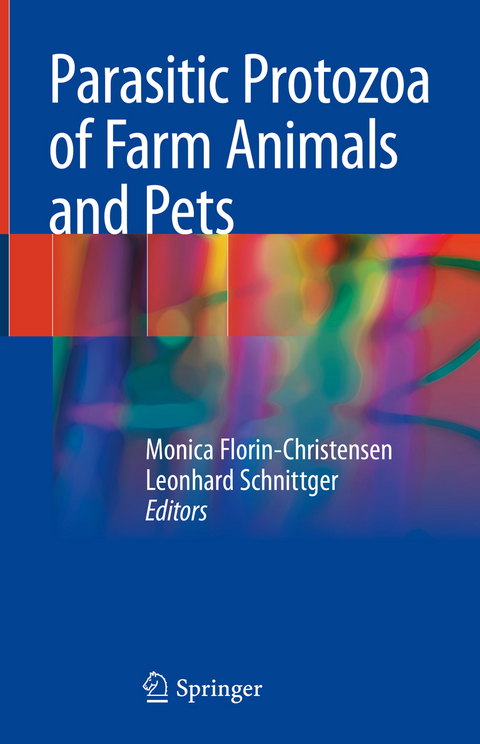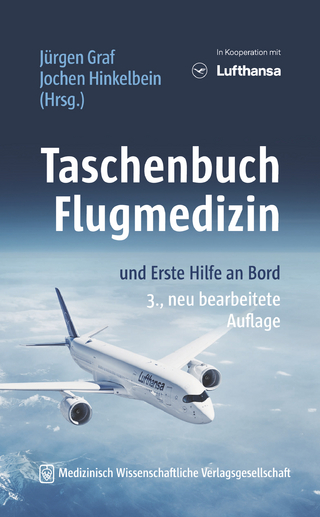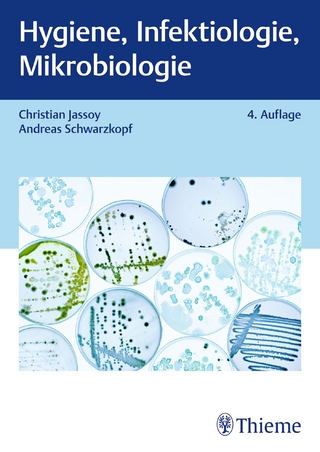
Parasitic Protozoa of Farm Animals and Pets
Springer International Publishing (Verlag)
978-3-319-70131-8 (ISBN)
- Each chapter is focused on a specific zoopathogenic protozoan species
- Offers readers vital insights into the biology of common parasitic protozoa
- Highlights the latest advances in the diagnosis, prevention and treatment of protozoa-derived diseases
This book provides an in-depth yet concise overview of the most common and emerging protozoa that cause diseases in both farm animals and companion animals.
As outlined in the concise introduction, pathogenic protozoans represent an evolutionary highly diverse and little understood group of disease-causing microorganisms. For each of the featured parasitic unicellular eukaryotes, it discusses the morphology, lifecycle, epidemiology and host-pathogen interactions.
In addition, the book highlights the latest developments in diagnostic methods, as well as prevention and treatment strategies. Thorough information on genomes and genetic manipulation strategies for some of the protozoa covered in this book is also included.
Infections involving parasitic protozoa can cause productivity losses and/or reduce the quality of life of infected animals. Some infections are zoonotic, posing an on-going public health threat. In most cases, prevention and treatment are either non-existent or need considerable improvement.
On the other hand, a great deal of research has recently been conducted on these organisms, yielding valuable new information on their global distribution and revealing the mechanisms of host-pathogen interactions at the molecular level – and essential insights that can be used for the development of new control tools.
This book includes extensive information on both basic aspects and recent scientific discoveries on these protozoa and thus constitutes a unique resource for students, veterinarians, and researchers alike.
Monica Florin-Christensen and Leonhard Schnittger are biologists and researchers with the National Council of Scientific and Technological Research of Argentina (CONICET). Further, they lead a group that is investigating molecular parasitology, focusing on pathogenic protists of veterinary importance, at the Institute of Pathobiology, National Institute of Agricultural Technology (INTA, Argentina).
1. What are protozoa?
1.1. Generalities
1.2. Evolution and diversity
1.3. Overview of Apicomplexa, Kinetoplasta and Amoebozoa
2. Cryptosporidium spp.
2.1. Morphology, life cycle and host-pathogen interactions
2.2. Epidemiology
2.3. Clinical effects, diagnosis, prevention and treatment
3. Eimeria spp.
3.1. Morphology, life cycle and host-pathogen interactions
3.2. Epidemiology
3.3. Clinical effects, diagnosis, prevention and treatment
4. Sarcocystis spp.
4.1. Morphology, life cycle and host-pathogen interactions
4.2. Epidemiology
4.3. Clinical effects, diagnosis, prevention and treatment
5. Neospora caninum
5.1. Morphology, life cycle and host-pathogen interactions
5.2. Epidemiology
5.3. Clinical effects, diagnosis, pr evention and treatment
6. Toxoplasma gondii
6.1. Morphology, life cycle and host-pathogen interactions
6.2. Epidemiology
6.3. Clinical effects, diagnosis, prevention and treatment
7. Babesia spp.
7.1. Morphology, life cycle and host-pathogen interactions
7.2. Epidemiology
7.3. Clinical effects, diagnosis, prevention and treatment
8. Theileria spp.
8.1. Morphology, life cycle and host-pathogen interactions
8.2. Epidemiology
8.3. Clinical effects, diagnosis, prevention and treatment
9. Besnoitia besnoiti
9.1. Morphology, life cycle and host-pathogen interactions
9.2. Epidemiology
9.3. Clinical effects, diagnosis, prevention and treatment
10. Trypanosoma spp.
10.1. Morphology, life cycle and host-pathogen interactions
10.2. Epidemiology
10.3. Clinical effects, diagnosis, prevention and treatment
11. Leishmania spp.
11.1. Morphology, life cycle and host-pathogen interactions
11.2. Epidemiology
11.3. Clinical effects, diagnosis, prevention and treatment
12. Tritrichomonas foetus
12.1. Morphology, life cycle and host-pathogen interactions
12.2. Epidemiology
12.3. Clinical effects, diagnosis, prevention and treatment
13. Acanthamoeba spp.
13.1. Morphology, life cycle and host-pathogen interactions
13.2. Epidemiology
13.3. Clinical effects, diagnosis, prevention and treatment
14. Genomics and genetic manipulation
14.1. Comparison of sequenced genomes of parasitic protozoa
14.2. Advances in genetic manipulation
| Erscheinungsdatum | 13.03.2018 |
|---|---|
| Zusatzinfo | IX, 438 p. 76 illus., 66 illus. in color. |
| Verlagsort | Cham |
| Sprache | englisch |
| Maße | 155 x 235 mm |
| Gewicht | 828 g |
| Themenwelt | Medizin / Pharmazie ► Medizinische Fachgebiete ► Mikrobiologie / Infektologie / Reisemedizin |
| Naturwissenschaften ► Biologie ► Mikrobiologie / Immunologie | |
| Veterinärmedizin ► Klinische Fächer ► Mikrobiologie / Immunologie | |
| Veterinärmedizin ► Klinische Fächer ► Parasitologie | |
| Veterinärmedizin ► Heimtier ► Krankheitslehre | |
| Veterinärmedizin ► Großtier ► Krankheitslehre | |
| Schlagworte | epidemiology • Host-pathogen interaction • Life-cycle • unicellular eukaryotes • Zoonose • zoopathogenic microorganisms |
| ISBN-10 | 3-319-70131-2 / 3319701312 |
| ISBN-13 | 978-3-319-70131-8 / 9783319701318 |
| Zustand | Neuware |
| Informationen gemäß Produktsicherheitsverordnung (GPSR) | |
| Haben Sie eine Frage zum Produkt? |
aus dem Bereich


